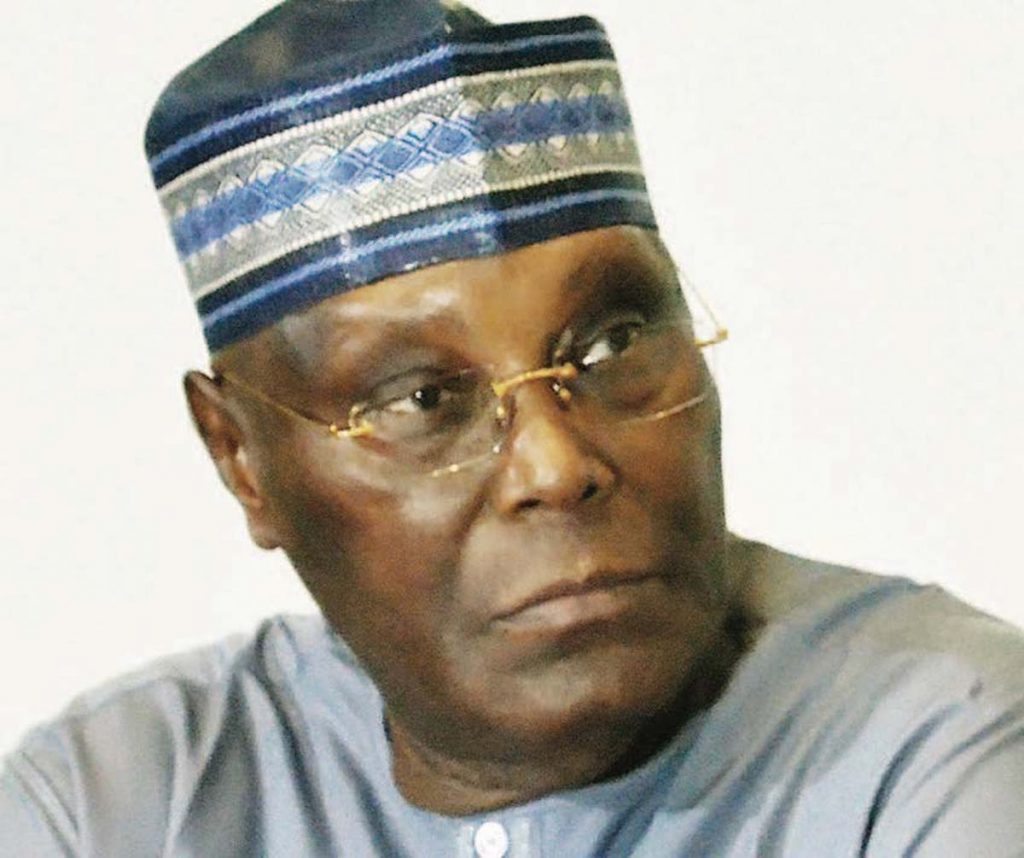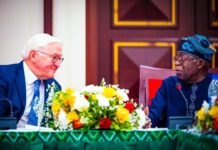
By Ebere Agozie
The Presidential candidate of the PDP, Alhaji Atiku Abubakar has approached the Supreme Court to nullify the judgment of the Presidential Election Petition Court, which on Sept. 6, upheld the declaration of Bola Ahmed Tinubu as winner of the 2023 presidential election.
Atiku in the Notice of Appeal predicated on 35 grounds, insisted that the tribunal in the judgment delivered by Justice Haruna Tsammani committed grave error and miscarriage of justice in its findings and conclusion in the petition challenging the declaration of Tinubu as President by INEC.
The Notice of Appeal filed by Atiku’s lead counsel, Chief Chris Uche, SAN is praying the apex court to set aside the whole findings and conclusions of the tribunal on the grounds that they did not represent the true picture of the grounds of his petition.
The former Vice President maintained that the tribunal erred in law when it failed to nullify the presidential election held on Feb. 25.
He wants the election nullified on the grounds of non-compliance with the Electoral Act, 2022, when by evidence before the tribunal, INEC conducted the election based on grave and gross misrepresentation contrary to the principles of the Electoral Act 2022, based on the “doctrine of legitimate expectation”.
Atiku alleged that the Presidential Election Petition Court (PEPC) erred in law by not taking into cognisance the Doctrine of Legitimate Expectation when the Independent National Electoral Commission (INEC) failed to conduct the election in accordance with its own guidelines and the Electoral Act 2022.
The doctrine of legitimate expectation, he said, was first developed in English law as a ground of judicial review in administrative law to protect a procedural or substantive interest when a public authority rescinds from a representation made to a person.
He said in Nigeria, the doctrine of legitimate expectation demands that a public authority shall respect and apply its stated position or sustained practice in exercising its powers on members of the public.
Abubakar prayed the Supreme Court to declare him the authentic winner of the Feb. 25 presidential election based on lawful votes cast by Nigerians during the poll.
He said that in the alternative, the apex court should order a rerun election to be conducted for him and Tinubu being the 1st and 2nd runners up in the last presidential election.
While challenging the entire judgment of the tribunal, Atiku claimed that the lower court erred in law when it failed to determine his case with respect to the mandatory verification and confirmation required before the announcement of the results of the presidential election, pursuant to Section 64(4) of the Electoral Act, 2022.
He averred that all the Collation Officers, Returning Officers and INEC Chairman are under a statutory obligation to confirm and verify that the results being collated is consistent with the results directly transmitted from the polling units before making final announcement on the general elections.
Faulting the entire decision further, the appellant in ground eight claimed that the lower court erred in law when in its interpretation of Section 134(2) of the 1999 Constitution held that Tinubu does not need to score 25 per cent of lawful votes cast in the Federal Capital Territory (FCT).
“The issue submitted to the tribunal called for the interpretation of the material word and in the said Section 134(2), adding that the provisions of the Section are clear and unambiguous,” he said..
Abubakar contended that the tribunal made grave error and miscarriage of justice in striking out the witness statement on oath and the entire evidence of his subpoenaed witnesses on the erroneous grounds that the said statements were not filed along with the petition.
According to him, the subpoenaed witnesses were essentially persons whose witness statement on oath could not practically be ready and available at the time of preparing and filing of his petition.
“PW 21 and PW 26 were witnesses whose witness statements on oath and experts reports were predicated upon the order of the same tribunal made pursuant to Section 146(1) of the Electoral Act, 2022, which authorized them on behalf of the appellants to proceed to inspect electoral documents in the custody of the 1st respondents (INEC) for the maintenance of the petition.
“The said witness statement on oath and the reports were products of the inspection conducted pursuant to the order of court and could not have been produced in advance before the filing of the petition, same being dependent on access to electoral documents in the possession of an adverse party “.
He further argued that the striking out of the evidence of the subpoenaed witnesses of the appellant was in breach of their rights to fair hearing and was to amputate the evidential limbs of the case of the appellant and peremptorily and technically knock out the case of the appellant.
In ground 7 of the appeal, he averred that the lower Court erred in law when it failed to nullify the presidential election held on Feb. 25 on the ground of non-compliance with the Electoral Act 2022.
He said by evidence before the Court, the 1st Respondent (INEC) conducted the election based on very grave and gross misrepresentation contrary to the principles of the Electoral Act 2022, based on the “doctrine of legitimate expectation”.
Abubakar that the said persons are not necessary or statutory respondents as envisaged by Section 133 of the Electoral Act, adding that no relief whatsoever was claimed against the said persons for which their non-joinder will affect their rights to fair hearing.
He therefore, maintained that the Supreme Court should nullify the declaration of Tinubu as winner of the presidential election on the grounds that he did not score the majority of the lawful votes in the February 25 presidential election.
Meanwhile, no date has been fixed for hearing in the appeal by the Supreme Court.(NAN)





